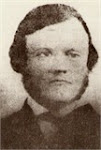As I blogged previously (Do Your Duty ) I was hailed into federal court this week for jury service. Contrary to all expectations, I was actually chosen to sit on a jury for a two-day trial. The case involved a civil suit by an inmate at the Boscobel state prison (WISCONSIN SECURE FACILITY) who claimed that prison officials had put him into 'administrative confinement' ( Wisconsin Administrative Code: DOC) in retaliation for his previous numerous lawsuits and formal administrative complaints. The inmate represented himself and the prison officials were represented by two Assistant Attorneys General from the state DOJ (Justice, Department of). More on the trial in a moment.
In this district (United States District Court, Western District of Wisconsin), you serve in a jury pool for three months. The deputy clerk pulls three-hundred names from the rolls of voters in the last presidential election (that is the only criterion for jury service in federal court). Those 300 then fill the jury panels for the next three months.
Aabout 30 of us were summoned to report on Monday up at the federal courthouse downtown (the big blue building behind the Overture Center). Two trials were scheduled for the week. First we watched a short video on jury service and then about 9 am the deputy clerk called thirteen names for the first jury panel, yours truly included.
Once in the courtroom, Chief Judge Barbara Crabb conducted voir dire (Voir Dire: Creating the Jury). Each prospective juror stood and gave a short bio (age, residence, work, spouse, children, interests, memberships, and so on). After that the questions became increasingly personal and uncomfortable. Obviously, a federal trial is serious business, the parties have spent hundreds of hours preparing - and you have also taken an oath to tell the truth. So, when the questions come whether you or anyone in your family has ever been in jail, a victim of a crime, and the like, you feel obligated to tell the whole unstinting truth. The judge did afford the opportunity for a sidebar with her and the parties if you didn't feel like shouting some detail of your private life across the courtroom.
By the end of voir dire I had revealed (inter alia) that I had served as defense counsel in federal and state court, had visited prisons in law school and to represent clients in federal parole proceedings, and belonged to the American Civil Liberties Union. Each party got three peremptory strikes (challenges to potential jurors for which no reason is required). Now by this point I was certain there was no way the state was going to let a Constitution-hugging former defense lawyer sit on this jury involving a member of a white separatist group (not a white supremacist group as the inmate stressed, gosh, no) against two prison staff members. But they did.
I was also wrong when I guessed that the inmate would surely strike the two African American members of the panel. Only one was struck (the judge announces who is struck so you don't know who actually eliminates a juror). I also expected the spouse of a police officer to be struck, but she wasn't. Each party then gives an opening statement (the plaintiff - in this case the inmate - goes first), followed by the plaintiff calling witnesses. The inmate called himself and then the guard supervisor of his cell block and the social worker. That took most of the day with lunch on our own. The defense took up the next morning followed by closing arguments. Deliberations began around noon.
Jurors are not allowed to talk to one another about the evidence until the deliberations at the end of the trial. Since we were seven strangers with nothing else in common that was awkward, but I must say that everyone adhered to the rule. Indeed, I came away quite impressed by my fellow jurors and their respect for the process, their attention to the evidence, the rights of the parties to a fair and impartial ruling, and their adherence to the rule of law as laid out by the judge.
I was chosen as jury foreman (I volunteered - doh!). We had a free-ranging discussion of the case for 15 or 20 minutes before we focused on the three special verdict questions (Federal Rules of Civil Procedure - Rule 49 (LII 2007 ed.)) As best I can recall the questions were: 1. Did the plaintiff file lawsuits prior to the date of the claimed retaliation? Both parties agreed the answer to that was 'yes'. 2. Were his lawsuits and complaints one of the reasons that he was placed in administrative confinement? and 3. Only if we answered 'yes' to question 2, did the prison officials have other non-retaliatory reasons for putting him in administrative confinement?
We debated all afternoon on whether the the inmate had carried his burden to show that it was more likely than not that the defendants had retaliated against him. It was an extremely close call. We started 4-3 in his favor, but first two votes changed and finally we reached agreement. As we went back and forth, we reread the jury instructions that if we found the existence of a fact to be so uncertain that we had to resort to guesswork or speculation, then we should rule against the party with the burden of proof. At the end of the day, we all agreed that the inmate had a difficult case to prove and that he had not quite fulfilled his burden.
Having been required to report the deputy clerk said it was unliely we would have to report again in this three month period. Frankly, I would not mind doing it again, but having more notice would be nice (you find out on Tuesday whether to report the following Monday). All in all, it was an experience that every citizen should have.
Friday, March 14, 2008
Subscribe to:
Post Comments (Atom)
















No comments:
Post a Comment